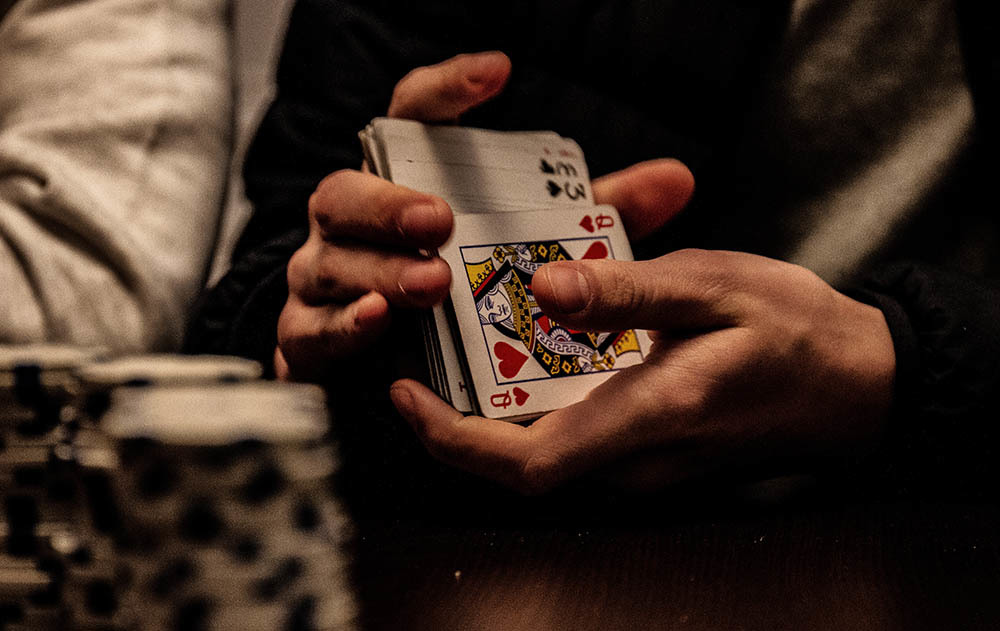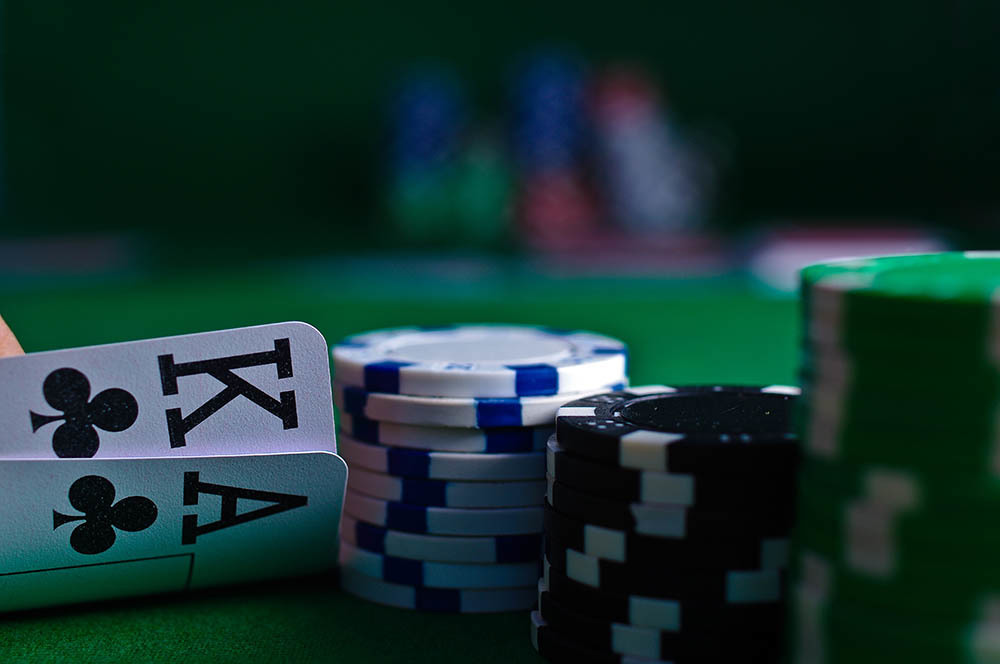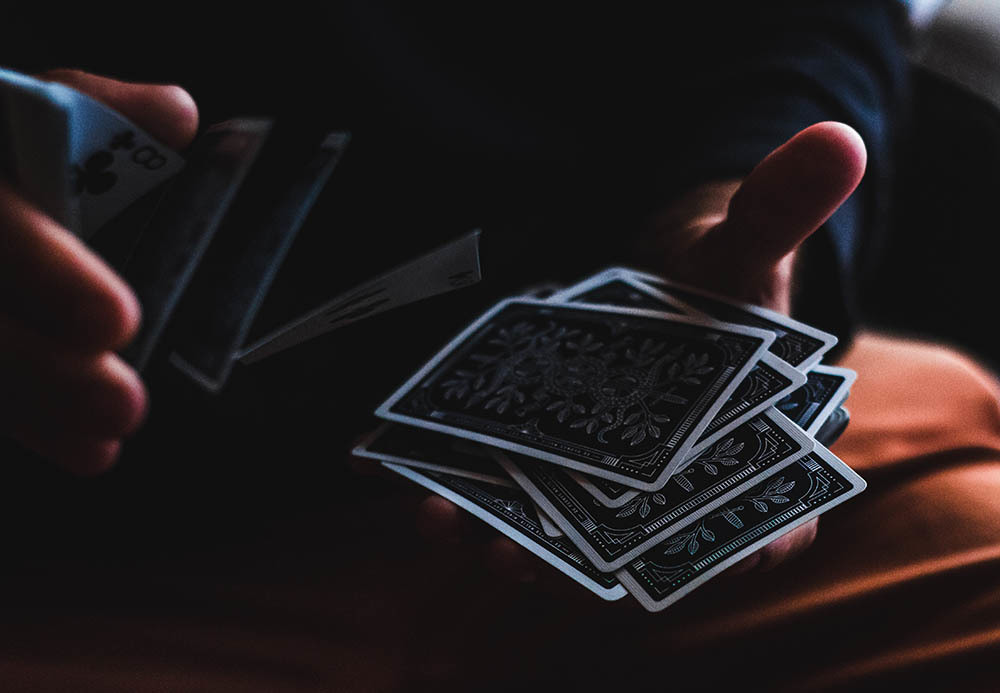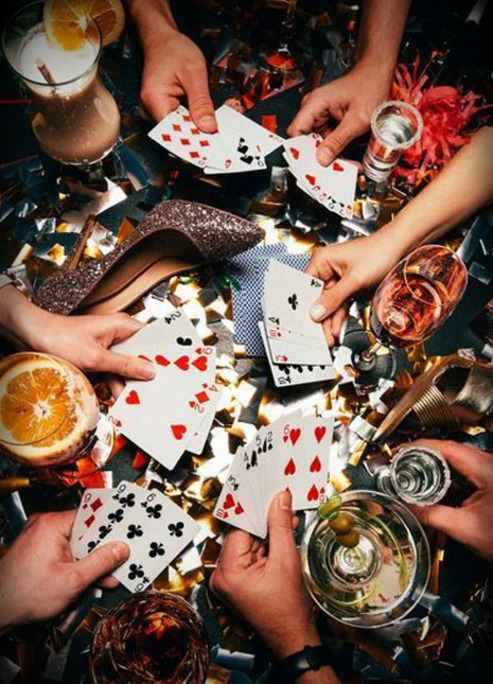
Logic vs. Intuition in Poker: How to Play Like a Pro?
There are three main routes to master.
There are many popular poker games that are played all around the world. However, the most popular of all of the different poker variants is, without a doubt, the game Texas Hold'em. It's a card game where each player gets two cards and then gets the chance to make winning combinations with the community cards. The player can indeed make a strong hand with the cards at the table, or they can bluff their way to win.
And this is why Texas Hold'em is such a difficult game to master. In fact, we don't believe that it's quite possible to master this game completely. Sure, there are players who have shown an outstanding level of skill, but learning about Texas Hold'em is a life-long journey. There are three main routes to master this game, and you'll get to read about them below.
The Role of Luck in Poker

Regardless of whether you're playing in a high stakes casino or in a private game at your friend's home – there's no denying that the influence of luck in the game of poker is big. Sometimes you'll win when your opponent has a stronger hand on the turn, and you only have 4 outs on the river. And vice versa. There are countless examples of players who have experienced the treacherous role of luck in poker – you can check Phil Hellmuth's videos on YouTube for some extreme examples of this.
So, there's no denying that there's a lot of luck involved in playing the game of poker. However, the worst thing that you could do when it comes to playing poker is to base your play solely on luck. Unfortunately, there are many players who do just this. They light a candle before they go and play poker and pray that they will win.
And every once in a while, they'll hit big – due to luck alone. And they'll be very happy about it, ecstatic and jubilant. They'll believe that Lady Luck is literally on their side, and they are in her favor, so there's no stopping them. What they fail to realize is that they were just lucky – not by the influence of some all-powerful deity, but just by blind luck.
This is definitely not the long-term approach that we advocate. If you base your play on luck, then you're bound to lose a lot more money than you'd win. Again, there's no denying that sometimes winning a huge tournament can depend on luck alone. But you'd better arm your game if you want to become a champion and win a lot of money playing poker.
The Role of Logic in Poker

Logic is the first step on the way towards becoming a great player. And though it's simple – we can't really say that it's easy. It's anything but easy to become an expert poker player and ingrain all the important logical concepts of the game. And the logic of the game of poker isn't about learning the basic rules of the game. You can learn the basics in a few minutes, and this is what makes the game of poker so accessible. Practically anyone in the world can learn how to play the game of poker easily.
All you'll need to do is learn how the winning combinations are ranked, about when you can bet, and when you can fold. And then you learn about the flop, turn, and river – if it's Texas Hold'em that you're playing. Once you learn these things – and learning them is very easy – it means that you're ready to play the game.
But you're a long way from mastery, we'll tell you that. The fact is that there are so many logical principles and quirks in the game of poker that it can make your head spin. The fact is that the complexity of poker is what discourages many players from getting serious about mastering the game. It's completely understandable, too. There are seldom people who are prepared to invest countless hours in learning the ins and outs of poker.
But the good news is that, with each game that you will play, the better you will be at poker. Of course, you'll make the biggest leaps in progress at the beginning, when everything is new. As you advance with your skills, then you may end up experiencing plateaus when it will seem that you're making the same mistakes over and over again when playing.
But the important thing is to persevere. Don't get discouraged, as there are countless people who have been in the exact same position that you're in. In time, you will manage to blast through these walls and get exponentially better than before, learning to appreciate the intricacies of the game even more.
So, what does it mean when we say that you must use logic when playing poker? "Logic" is an important word that encompasses several elements. For one, you will need to get acquainted with the math in poker. Are you afraid of math? Couldn't you wrap your head around it back in high school? Well, if you want to get really good at poker, you will have to come to grips with some of the basic principles of math in poker. This is closely tied in with probability theory.
For example, you need to know when the odds are in your favor based on the situation at the table. And you will need to make quick calculations. It's one thing to watch poker matches online or on TV, as there are computer programs that perform automatic calculations based on the cards that the players hold and the number of outs that they have to win the game. If you're playing the game of poker yourself, then you simply don't have the luxury of using computer programs to help you out. You will have to make do with what you have – your concentration and math knowledge. Of course, the other players at the table won't be silent either. And some of them will try to tilt you if they see that you're doing calculations as it's in their best interest for you to lose focus.
Again, your brain may be racing during your first few experiences with poker. Everything will seem new, and you will feel great pressure not to make a blunder of any kind. But in time, things will even out for you. You will attain a level of calmness when playing. One thing that we recommend serious players not to do is to drink alcohol or play poker under the influence. This will cloud your mind, and you'll make a lot riskier, less informed bets that will eventually cost you dearly.
So, if you practice doing mathematical calculations when playing poker, pretty soon, you will come to realize that this has become second nature to you. You will make instant calculations, and they will be rock solid, and you will then be able to make better decisions as to how to proceed to play the round. Of course, as mentioned before, blind luck plays a part in it, as sometimes, even if the odds are overwhelming for one event to come to fruition – the exact opposite will happen, losing you the round. But still, the game of poker is a game of probability. If you turn the mathematical odds in your favor, then the chances are that you'll win a lot more often than you will lose. It's as simple as that.
But it's not all about mathematical principles, either. Logic comes in many different forms. The professional players know that psychology is very important when it comes to playing poker. What you think is just as important as what other players think. And you'd do well to accurately guess their thoughts.
In the movie industry, there used to be a lack of understanding of poker psychology to a degree where it was dumbed down to a level where a kindergartner would understand it. The importance of "poker tells" was overblown to great proportions. What this theory says is that a player will develop a body language tell when playing the game of poker – and that this tell will come out consistently. For example, in the movie industry, we've seen that a player scratches their ears when having a great hand. And the ingenious opposing player learns of this habit and tell and uses this information to consistently outwit their unwitting opponent.
In real life, the "poker tells" aren't nearly as obvious as they are made to seem in the movies. But note that we're not saying that there's no such thing as poker tells. There are poker tells – but they are very subtle, and even experts in body language can be deceived into believing that they've witnessed a poker tell.
What this means is that you'll have to pay attention to what your opponents are doing on the poker table – and not just about the quality of their hands. If you watch them carefully, then you will be able to glean into what they may be holding in their hands. Again, these tells won't be as obvious as Hollywood makes them seem. But there's still a treasure trove of information that is there for the taking – as no person that has ever lived can ever control their emotions completely. So, being able to pinpoint micro-tells may do wonders for your game as you will be able to "divine" what other players hold in their hands.
However, it isn't as simple as that. Other players will be well aware that everyone is trying to guess what they're holding based on the expression of their face and their body movements. So, in many instances, they will try to feign that they're holding a strong hand or a weak hand and draw a reaction from their opponents. This is the art of bluffing in poker, and it deserves its own encyclopedia, so to speak.
You can do this too – if you're holding a strong hand, then you may try and implement some submissive, disillusioned body language so as to deceive the other players. Or you may do a reverse-bluff and be congruent with your emotions – if you have a strong hand, then you can act cocky and bashful about it to make the other players think that you're lying that you have a strong hand. Again, the importance of learning the ins and outs of the art of bluffing in poker cannot be overstated.
In all cases, you will need to keep an eye on what other players are doing at the table – but also what you are doing at the table as well. You need to be hyper-vigilant when playing poker, being careful to note what everyone's doing and not to overload your conscious mind with superfluous information. In time, you will learn to pay attention to the important stuff and discard the rest – while still being able to enjoy yourself and relax when playing the game.
In any case, at every step of the way in a game of poker, you will make decisions that are based on logic. And these would be good decisions, as it's almost never a smart thing to do to stray away from the logical principles that govern the game. So, the importance of logic is paramount. The more time you spend thinking about the game and the more you play it, the bigger will your logical acumen grow and the better decisions you will be able to make as you play.
The Role of Intuition in Poker

Intuition is a lot more ephemeral concept compared to logic. Can you teach intuition? Can you learn about it from a book? Sure, but it's a lot more difficult to do so; it's in no way as easy as learning about the mathematical principles of poker. But this in no way means that the role of intuition in poker is of secondary importance – far from it.
However, the main thing to realize about intuition is that it's not a concept for novice players. We're not saying that novice players can't use intuition – but we're saying that it's a much more powerful weapon in the hands of experienced, expert players.
So, what does it mean to make intuitive moves when playing the game of poker? Again, it's difficult to pinpoint decisions based on intuition. Experienced players will know that feeling that they get at certain points in the game. That indescribable feeling that nods their mind into making a certain decision – even though this decision would go against the principles of logic.
It's important to note that there's nothing "magical" about intuition, too. It's not God's far-reaching hand that tells you to make a move when playing poker. In actuality, it's your subconscious mind that tries to tell you something. And the weirdest thing about intuition is that you won't be able to explain it consciously. You'll have no idea what exactly made you move a certain way. You can try and rationalize it – but the truth is that this rationalization won't explain the complete nature of your intuitive move.
Perhaps you have picked up a minute tell of your opponent's, subconsciously. Again, you won't be able to explain what it is about your opponent that gave them away so that you can now make a solid guess what their cards are. And this is what intuition is about. It's that indescribable feeling that you get that dictates your next move when playing.
So, if you're a novice player, then don't even think about using intuition when playing. Intuition is not a skill that you can't learn overnight. It won't even be clear to you when exactly you have attained intuition, even if you're a highly experienced player. And it takes vast experience playing poker in all different scenarios to get the gift of intuition.
Moreover, the best way to let intuition work its way is to get into a high-stakes match. Only if you're facing serious pressure to make the right call will intuition come to guide you. If you're playing casual poker games, then you won't be able to experience that level of hyper-focus that's prerequired to activate intuition.
So, it's all down to how focused you are when playing and how much of an experience you have behind you in the game of poker. When playing poker, even if you aren't thinking about it, over time, your subconscious will pick tidbits of information that you won't even be aware of. And these tidbits of information that you've subconsciously picked up won't amount to anything significant if you don't have the experience to back it up. But in time, your in-depth knowledge of the game will continue to grow to an extent where you will become an expert player, too – being able to make both logical and intuitive moves at the right time when playing.
The Art of Mixing Logic and Intuition
The name of this article is Logic vs. Intuition, as it's a battle between the two. And to an extent, this is indeed the case, as sometimes you will need to use intuition as an affront to logic and vice-versa. But the truth is that there is a delicate interplay between the two – and expert players know to implement the two. They know that there is a synergy that makes the whole a lot bigger than the sum of its parts.
You should try and implement logic to the best of your knowledge from your very first game of poker. Every once in a while, try to relax when playing and listen to what your gut is saying. Even if you end making the wrong move, this is still an important experience that you will need to get to hone down your intuition. And in time, you will upgrade your knowledge of poker logic to a rock-solid level – but you will still know when to follow your gut and make a decision based on your intuition alone.
Don't get discouraged if you don't feel like you're progressing after some time playing. Again, learning and mastering poker is a life-long process, and you need to be fully dedicated to it. The best part about it is that the skills that you will learn playing poker can be implemented in other areas of your life. For example, your intuition may shine through when making choices that are completely different than the ones you make at the poker table – with the distinction that, this time, you will know to listen to it.
In Conclusion

So, by now, you're well aware of the importance of logic when playing poker. You also know that intuition holds significant value when playing the game, especially at the higher levels – and that it may not be in your best interest to make all your decisions in poker based on logic alone.
You also know that logic can be learned in the short term but that it takes years on end of dedicated poker practice to hone down your intuition to a level where you can consistently trust it whenever it comes out. And even though an intuition may seem elusive at first, if you make an effort to play poker consistently – it will come to you. That indescribable feeling that will guide you will start showing itself more frequently – and especially in high-stakes poker games.
But the important thing is not to demonize neither logic nor intuition or to praise either of them as the end all be all of poker. Only by mixing healthy amounts of logic with intuition will you be able to achieve an expert level of skill in poker. And this will help you play poker like a pro. Keep practicing and keep your focus on the game, and the rest will take care of itself.
You may be surprised to see that you're winning more and more games and that you make bigger profits than ever before while playing poker. It's the only route to go if you want to attain poker mastery. Good luck!











